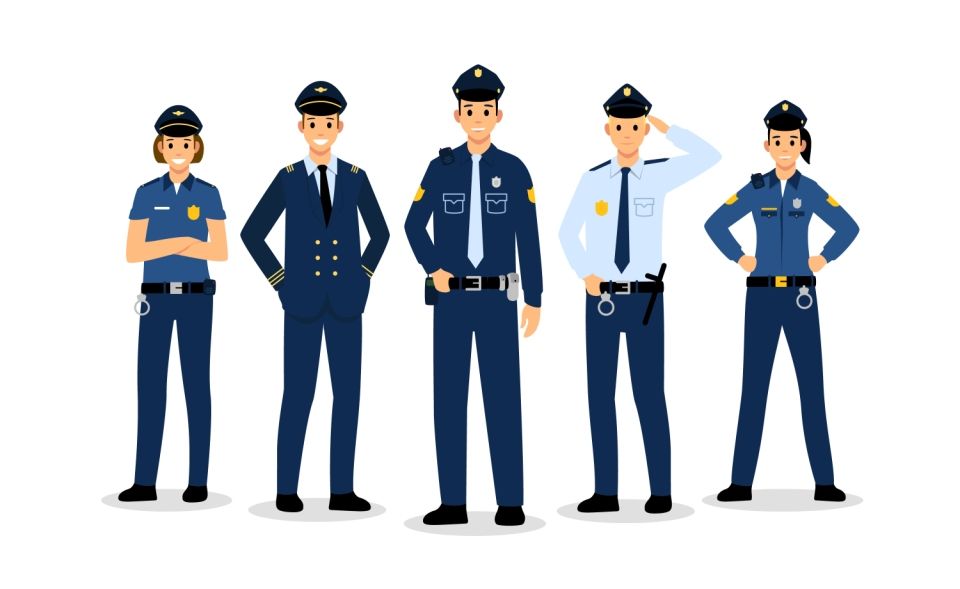
Security Guard
In today’s time, the security business is tremendous. Different businesses are rising and so is the need for security services. Businesses face numerous threats and hazards all-year-round which is why having a security guard is already a need for most companies and small businesses. Whether working in a residential property, private industry or government institution, the security guard has a similar responsibility. The primary responsibilities of the security guard are to protect assets by monitoring, reporting, and defending against any breach of security.
The security guard sector is an important element of the economy, and it has experienced tremendous growth in recent years. Despite its enormous scale, many individuals still believe that the services it offers are all the same. This misconception couldn’t be more wrong, though! There are many different security guard services to choose from, and each one is better suited for specific needs.
Types of Security Guards
The security profession is multi-dimensional with a wide variety of roles and functions for various types of businesses, organizations, and private individuals. Here is our list of the top nine types of security jobs:
1. Unarmed Guards
One of the most common types of security guard is the unarmed guard. This type of guard spans a wide variety of businesses, industries, venues, and organizations. The roles and responsibilities of an unarmed guard range from managing and monitoring security cameras and equipment, conducting foot patrols, controlling access to facilities, and much, much more. This type of security role is generally the most common type of role and where the majority of security professionals begin their careers.
2. Mobile Guards
Mobile guards patrol the premises of a particular facility or campus in a vehicle. You will most commonly find mobile guards at your local mall, airport, community college, or corporate campus. Mobile guards enforce on-site road and parking rules and regulations, and they also have the responsibility to be a constant security presence that deters bad behavior and crime. Mobile guards must always be ready at a moment's notice to respond to any security incidents, requests for help, or other security concerns.
3. Armed Guards
With additional types of training and licensing for security guards, some security guards become armed guards. Armed guards, in general, are considered a higher level of security guard that is permitted to carry firearms. However, with this privilege comes much greater legal, moral, and professional responsibility. Armed guards must be fully aware of the law and must only ever use force legally and as an absolute last resort in the face of a real and present threat. Duties of an armed guard include acting as a security presence, responding to incidents, and always being ready to respond to dangerous security incidents, such as an active-shooter event.
4. Residential Guards
Local neighborhoods, apartment complexes, and communities also leverage security personnel. These types of guards help communities conduct neighborhood watch programs, control community access, respond to neighborhood security incidents, and function as a continual security presence to deter crime. Residential guards also regularly conduct night watch operations.
5. Industrial and Construction Guards
Manufacturing facilities, warehouses, and construction sites all have a need for ongoing security. Many of these sites store high-value products, materials, and equipment that must be secured and protected. As an industrial security guard, you are responsible for monitoring the site premises, securing tools and equipment, controlling access to the site, and monitoring the premises after hours.
6. Corporate Guards
Offices and corporate sites require ongoing security presence as well. Corporate guards generally control and manage access to facilities, function as an on-site liaison to emergency services, ensure security best practices are followed, assist employees entering and exiting the campus, and manage all security cameras, alarms, and equipment.
7. Retail Guards
Retail guards have the responsibility of preventing the theft or loss of goods in retail locations. Retail guards do this by monitoring security cameras, patrolling high-value product areas, ensuring employees are not stealing or damaging products, investigating suspicious activity in the store, and functioning as a liaison with local law enforcement when theft occurs. These guards may also be authorized to detain known thieves until law enforcement arrives.
8. Event Guards
Whenever crowds assemble, security is necessary. Large event venues in particular utilize event security guards to control access to the venue, provide pedestrian and vehicle traffic control, and function as a presence to deter bad behavior and unsafe practices that can commonly arise in crowd settings. An event security guard may also find him or herself conducting security at concerts, ball games, and conventions.
9. Executive Guards
Some VIPs and executives need private security wherever they go. Executive guards often protect the celebrity, politician, or executive from being mobbed by crowds, avoiding dangerous situations, and providing physical security. This type of guard often needs to be physically fit and have a very highly developed sense for what is happening around him or her. Some executive guards may also be trained and licensed to carry firearms.
Rights & restrictions
- Members must be at least 18 years of age.
- Members are granted a time-limited, non-exclusive, revocable, nontransferable, and non-sublicensable right to access that portion of the online course corresponding to the purchase.
- The portion of the online course corresponding to the purchase will be available to the Member as long as the course is maintained by the Company, which will be a minimum of one year after Member’s purchase.
- The videos in the course are provided as a video stream and are not downloadable.
- By agreeing to grant such access, the Company does not obligate itself to maintain the course, or to maintain it in its present form.
